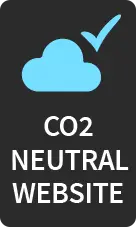
The History of Earth Day: Inspiration to take small steps for environmental change
Small steps you can take to celebrate Earth Day, today and beyond.
On the 22nd of April 1970, the modern environmental movement was born. A national demonstration named Earth Day was organized by a senator and consisted of numerous, coordinated rallies across the United States.
Earth Day inspired 20 million Americans, from a diverse range of organizations and backgrounds, to take to the streets and demonstrate against the environmental impacts of industrial development.
The actions that day marked a turning point and gave a voice to an emerging public consciousness about the state of our planet. It also led to the creation of the Environment Protection Agency the same year and the passage of other new environmental laws, including the National Environmental Education Act, the Occupational Safety and Health Act, and the Clean Air Act.
Now globally recognized, the history of Earth Day lives on and represents a moment to celebrate the progress made since 1970 and to inspire us to take action to protect the planet.
Here are some Earth Day ideas that you as an individual can do throughout the year to contribute.
Switch off
Switching off the lights, turning off your tv or computer rather than leaving it on standby, making sure your plug sockets are ‘off’ when you’re not using them are all small steps you can take to save energy.
Fossil fuels used to provide energy are well known to pollute the atmosphere, but even if your energy comes from renewable sources there is a need to conserve it.
It’s not just about the energy itself but about the wear and tear of the products used to generate and deliver the energy. The less they’re used the less they will need to be replaced, saving materials as well as energy in the long run.
Limit water usage
Water is essential for human being’s survival and whilst it seems like water is everywhere, it is a precious resource. Only one percent of the Earth’s water can be used by humans and the longer, hotter summers brought on by climate change are putting pressure on its availability.
Switching off the tap when you’re brushing your teeth, taking shorter showers, only half filling the sink when you’re washing up or washing your face all helps to conserve water.
You can even use left-over dishwater to water your plants, rather than turning on the tap to fill your watering can.
Reduce waste
We’re all getting more used to taking reusable bags to the shops and many of us are recycling more, but there is a long way to go to reduce the amount of waste that ends up in landfill.
Plastics have long been the enemy of waste warriors but any waste puts pressure on the environment. Even food, when placed in an airtight landfill, can take years to decompose causing air, water and soil pollution.
The best way to reduce food waste is to avoid it in the first place. Try to only buy what you will use, share it with a neighbor, make a soup with food that is near the end of its shelf life. Setting up a compost bin at home is a great way to recycle your food waste and produce your own fertilizer.
With other waste, many items considered to be single-use have a second life, it just needs a bit of imagination! Plastic bottles and glass jars can be washed and re-used, cardboard packaging makes great art projects, egg cartons and tetra packs are perfect for growing seedlings.
Plant a tree
Trees are an essential part of our ecosystem. They absorb carbon from the atmosphere and they contribute to the balance of oxygen, carbon dioxide and humidity in the air. They also provide vital habitats for the majority of the worlds animals, birds and insects.
Participating in a tree planting scheme is a great way to help restore those that are being cut down through deforestation or are being destroyed by natural events, such as wildfires.
Join a local group
The number of climate-conscious community groups is growing every day. You could join your local litter pick, help to run a recycling campaign or join an awareness-raising event.
There are also many online support groups offering advice and ideas for living more sustainably, from reducing single-use plastics to reducing your consumption of meat and animal products.
It's also a great way of meeting like-minded people and making new friends!
Become a climate champion
Talking about your ideas and actions is a great way to motivate other people to make small changes. Talk to your friends and family about what you can do and pledge to change a habit together.
Often the idea of tackling climate change can feel overwhelming but small steps really do make a difference. The more we do, the more we talk about it the more people take action, the healthier we can make the planet – together.
